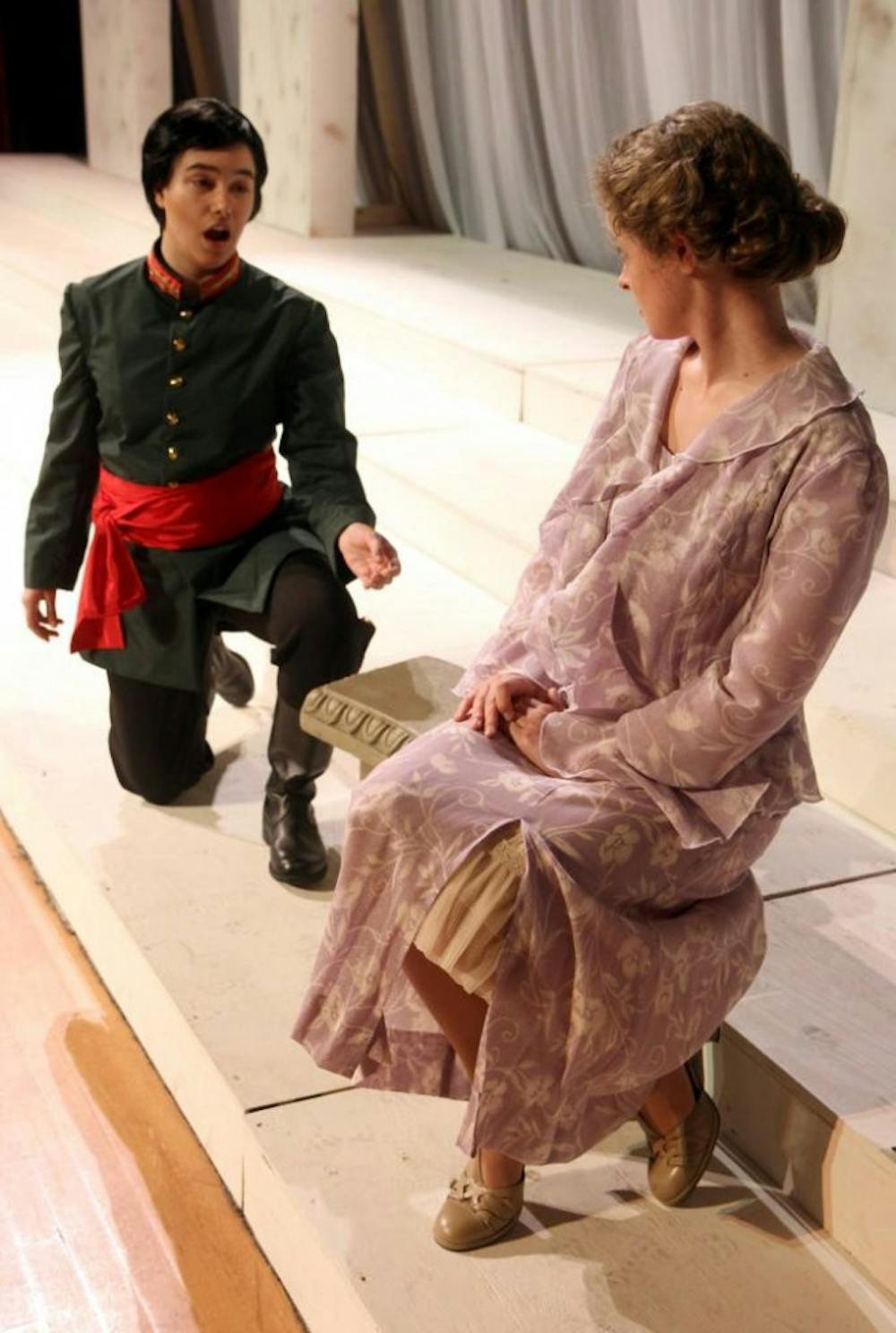The Mercer Opera performed Mozart’s Idomeneo beginning Thursday, Feb. 2, and lasting until Saturday Feb. 4 at Neva Langly Fickling Hall in the McCorkle Music Building.
Dr. Richard Kosowski directed Idomeneo, which was Wolfgang Amadeus Mozart’s first major operatic success.
Dr. Richard Young conducted the live quartet from the Robert McDuffie Center for Strings and Dr. Carol Goff played piano.
A slightly modern take on Idomeneo blended ancient Greek culture and religion with 1930s style and politics.
The set was simple and innovative. A projector depicted much of the scenery.
Auditions for Idomeneo were held this past August and the cast had been rehearsing since early September. The cast members were required to memorize their lines and music and prepare themselves for the show.
Kosowski said it was important for the cast to “learn what their particular role was in telling the story.”
Presented in three acts, Idomeneo resembles the story of Jephtha from the Bible’s book of Judges.
After Idomeneo conquered the city of Troy, he got caught in a storm as punishment from the god Neptune.
In order to survive, Idomeneo promised to sacrifice the first person he sees after returning home.
Unfortunately, the first person he saw was his son. For the rest of the opera, Idomeneo tried to find a way around this sacrifice while still maintaining his place as King of Crete.
There was also a bit of romance, as Ilia, princess of Troy, fell in love with Idamante, Idomeneo’s son.
The princess of Argos, Electra, however, had her sights on the throne and she tried to force Idamante to fall in love with her.
Christopher Rosborough played the main character, Idomeneo. Ilia and Idamante were double casted and Electra was portrayed by Tiara Walker.
Other roles included Arbace, played by Phillip Davis, and the god Neptune, voiced by Ryan Kirkonnell.
Many students made up the chorus and citizens of Crete.
Kosowski said that the story was originally a French Baroque opera presented in five acts. The 25 year-old Mozart and his librettist reduced the opera to three acts and changed the ending.
“The music writing is very experimental for the time ... You don’t find its equal until the mid-19th century,” Kosowski said.
There are no speaking lines in operas, so the cast had to practice for many hours. It takes years of vocal training to prepare the voice for such a performance.
“A good bit of what you hear is thanks to God, because they’ve been blessed with beautiful voices,” said Kosowski.
Participation in the opera was open to all students, and even members of the community.
Idomeneo was Mercer Opera’s second of three productions. In October, Mercer Opera performed the children’s opera A Muskrat Lullaby. In April they will be co-producing A Little Night Music with the Mercer Players.
Kosowski was most excited about “how the students have grown through the process.” They took a difficult piece of music and brought it to life for the audience, he added.






